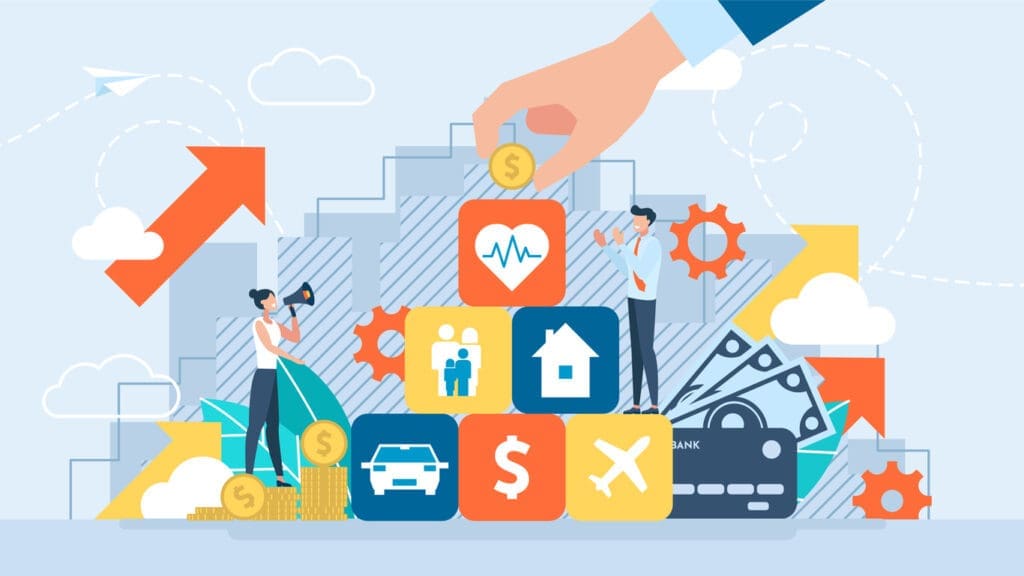Are Employee Benefits Really Necessary

Are employee benefits really necessary? The experts at Canal HR believe they are crucial for numerous reasons. Employee benefits help find and retain top talent, engage employees to participate in wellness programs, and can improve your company’s bottom line. To learn more about why the answer to are employee benefits really necessary should always be a yes, keep reading.
What are Employee Benefits Plans
Employee benefits plans differ for each company; however, there are some benefits that businesses must provide to employees. To learn more about those, check out our blog post, “Can Employee Benefits Be Taken Away.” At Canal HR, we understand that there is a no-one-size-fits-all approach to employee benefits, so our PEO experts will work with you to customize a plan that is best for you. Contact us today to get started.
Importance of Employee Benefits
If you ask any employee worldwide, “are employee benefits really necessary?” you will hear a resounding yes. Benefits ensure employees feel rewarded for their work in a way that goes beyond their paycheck. In addition, the benefits make it more manageable for employees to support their health and family while saving more for their future. Still unsure if employee benefits are really necessary? Below are some stats that highlight their importance to employees.
- 49% of employees will look for a new job within 12 months if the benefits aren’t satisfactory
- 75% of employees not only stated benefits are essential but that they want businesses to offer a broader range
- 40% of employees said a company is more attractive to them if the benefits are tailored to their needs
Why Employee Benefits Are Necessary
Employee benefits are really necessary because it shows loyalty and commitment to employees and makes them feel appreciated rather than just another number to a company. One of the top reasons that benefits are essential is that it helps attract the best talent. With the workforce shifting due to the pandemic, benefits are more important than ever. Plus, many people work in a hybrid or remote space now, so companies are no longer limited to people who can come into an office daily. This means they can attract people around the globe and find people that may be a better fit. However, with more options, that means more competition. Therefore, a robust benefits package is highly effective if a business wants to stand out in the hypercompetitive space.
Another reason employers should care about offering a strong benefits package is the worldwide emphasis on mental health. The pandemic highlighted the necessity for people to take care of themselves. Sometimes working from home can lead to a poor work-life balance, so having a benefits package that provides vacation or mental health days is a huge selling point. Plus, time away from work and taking a day when needed leads to happier employees, and happy employees are more productive, meaning more work and work of high quality is getting done for your business.
While many companies want to have a strong benefits package to attract new hires, it also is a great way to maintain loyalty with current employees. Keeping your employees happy means, you’ll spend less time and funds looking for applicants, hiring and training, and lower the risk of work falling in the cracks. Therefore, you need an employee benefits package to keep employees around for the long haul.
Employee Benefits by Generation
As noted above, employees don’t want the standard benefits package but instead want the benefits to cover what they deem essential. The best way to figure this out is to talk to your team and work with them to ensure they feel heard, invested in, and protected. However, research has shown the different benefits each generation wants.
Boomers
Boomers were born between 1946 and 1964, and the benefit that matters most to them is retirement and healthcare benefits since those who haven’t retired will soon.
Generation X
Born between 1965 and 1980, this generation makes up a significant portion of the workforce. The benefits for this generation include retirement planning, caretaker benefits, work-life balance, and increased paid time off. Due to getting older, retirement benefits are important. This generation is looking for increased vacation time.
Millennials
Millennials were born between 1981 and 1995, and now they are all above the age of 26, meaning that Mostly, they are no longer covered by their parent’s health insurance. However, since they are still young, healthcare might not be the most important benefit to them at the time. The benefits this generation wants include student loan repayment assistance, flexible work schedules, remote work, parental leave, and career advancement opportunities.
Generation Z
Gen Z is the latest generation to join the workforce, born between 1996 and 2012. Due to this generation entering the workforce when COVID-19 hit, many were furloughed or let go, which shifted the benefits they desired most. Now, job security is more important than previously believed. Gen Z also looks for jobs with health insurance, flexible working schedule, mental health benefits, and benefits that support diversity, equity, and inclusion (DEI).
Working with Canal HR to Lower the Cost of Your Employee Benefits Package
Now that you know the answer to are employee benefits really necessary, it’s time to start building out or improving your current benefits package. While that may seem daunting, the expert team at Canal HR is here to help. Our PEO experts will work with you on finding the best deals for your team and will handle the paperwork so you can focus on running your business. Contact us today to get a free consultation for employee benefits administration outsourcing. To learn more about employee benefits and other ways our team can help, check out our blog.

